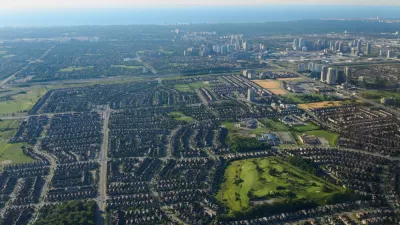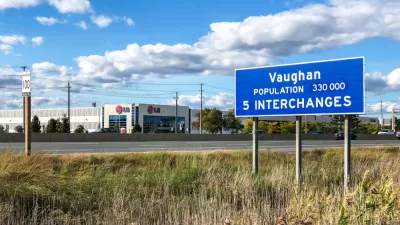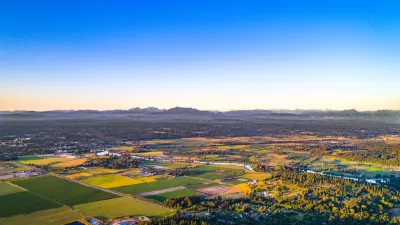A new report praises Ontario's greenbelt - 11 times the size of Toronto - as a model for urban growth control.
"The loss of prime agricultural land near cities due to urban sprawl is bemoaned the world over as a modern blight. But a solution may be at hand, for which Toronto should be recognized as a world leader: greenbelts, or farmland and environmentally sensitive land that has been officially made off limits to developers.
A study being released today says the zone of protected land around Toronto is not only one of the largest greenbelts in the world, but is also superior to ones in North America and Europe.
'Ontario's greenbelt is positioned to be the most successful and most useful greenbelt in the world,' concluded the study, compiled by the Canadian Institute for Environmental Law and Policy, a Toronto-based think tank. In making the assessment, the institute looked in detail at B.C.'s agricultural land reserve, one of the first efforts to curb sprawl in North America; Oregon's urban growth boundary; the unusual greenbelt that Germany is developing in the former no-man's land along the Iron Curtain; and the famed greenbelts around London and near Amsterdam. It dismissed as a "failure" the greenbelt around the Ottawa region assembled by the National Capital Commission, suggesting it has facilitated rather than hindered urban sprawl.
The study says farmers should be compensated 'financially for implementing environmental stewardship activities that benefit everyone.'
As well, governments need to encourage the consumption of food grown in the greenbelt through farmers markets and promoting crops that appeal to Canada's growing visible minority population.
The study will be submitted to the province as part of a consultation process by the ministry of municipal affairs on ways municipalities near Toronto can have some of their remaining rural countryside included in the greenbelt."
FULL STORY: Ontario's greenbelt a model for the world

Maui's Vacation Rental Debate Turns Ugly
Verbal attacks, misinformation campaigns and fistfights plague a high-stakes debate to convert thousands of vacation rentals into long-term housing.

Planetizen Federal Action Tracker
A weekly monitor of how Trump’s orders and actions are impacting planners and planning in America.

In Urban Planning, AI Prompting Could be the New Design Thinking
Creativity has long been key to great urban design. What if we see AI as our new creative partner?

King County Supportive Housing Program Offers Hope for Unhoused Residents
The county is taking a ‘Housing First’ approach that prioritizes getting people into housing, then offering wraparound supportive services.

Researchers Use AI to Get Clearer Picture of US Housing
Analysts are using artificial intelligence to supercharge their research by allowing them to comb through data faster. Though these AI tools can be error prone, they save time and housing researchers are optimistic about the future.

Making Shared Micromobility More Inclusive
Cities and shared mobility system operators can do more to include people with disabilities in planning and operations, per a new report.
Urban Design for Planners 1: Software Tools
This six-course series explores essential urban design concepts using open source software and equips planners with the tools they need to participate fully in the urban design process.
Planning for Universal Design
Learn the tools for implementing Universal Design in planning regulations.
planning NEXT
Appalachian Highlands Housing Partners
Mpact (founded as Rail~Volution)
City of Camden Redevelopment Agency
City of Astoria
City of Portland
City of Laramie





























